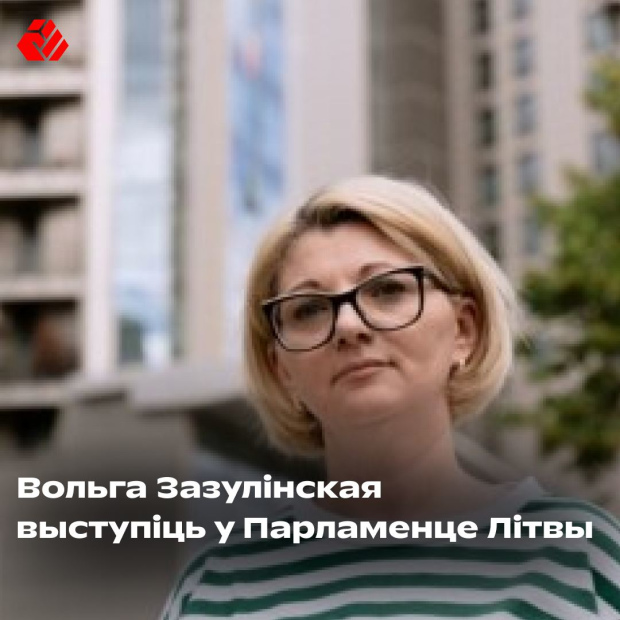On Wednesday, May 22, a meeting dedicated to the 70th anniversary of the Belarusian Service of Radio "Svaboda" will take place in the Lithuanian Seimas. Among the speakers will be public figures and politicians, including the Speaker of the Lithuanian Parliament, Viktorija Čmilytė-Nielsen, as well as the elected President of Belarus, Sviatlana Tsikhanouskaya. Olga Zazulinskaya, the head of "A Country to Live in" foundation, will speak at one of the panel discussions.
She will specifically describe the situation with political prisoners in Belarus overall and discuss ways to help them.
What are the main issues that the head of the Foundation plans to address?
The number of political prisoners is significantly higher than recognized by human rights defenders. Families often do not want the imprisoned person to be recognized as a political prisoner because it can worsen their conditions in prison. On one hand, this makes it difficult to assess the real number of political prisoners "and we rely on the figures from the human rights platform Dissidentby: their list is somewhat broader" – then support can be provided to the family practically from the first days [of imprisonment]. On the other hand, assistance to the family of a political prisoner does not depend on whether they are on the "Viasna" or Dissidentby lists.
"Assistance to the family is provided upon request from the party in need and based on the documents we ask for," says Olga Zazulinskaya. "If a person does not want to be on any lists, we respect their position."
"The only thing that undoubtedly does not benefit [the political prisoners] is the lack of publicity about their story."
According to former political prisoners, no matter how badly the prison guards treated them, if the media wrote about the prisoner, their situation was significantly better than those who were not mentioned at all. They could be tortured and pressured – and no one knew about it:
"No one learned about the abuse and could not use informational pressure to stop this horror."
She will specifically describe the situation with political prisoners in Belarus overall and discuss ways to help them.
What are the main issues that the head of the Foundation plans to address?
The number of political prisoners is significantly higher than recognized by human rights defenders. Families often do not want the imprisoned person to be recognized as a political prisoner because it can worsen their conditions in prison. On one hand, this makes it difficult to assess the real number of political prisoners "and we rely on the figures from the human rights platform Dissidentby: their list is somewhat broader" – then support can be provided to the family practically from the first days [of imprisonment]. On the other hand, assistance to the family of a political prisoner does not depend on whether they are on the "Viasna" or Dissidentby lists.
"Assistance to the family is provided upon request from the party in need and based on the documents we ask for," says Olga Zazulinskaya. "If a person does not want to be on any lists, we respect their position."
"The only thing that undoubtedly does not benefit [the political prisoners] is the lack of publicity about their story."
According to former political prisoners, no matter how badly the prison guards treated them, if the media wrote about the prisoner, their situation was significantly better than those who were not mentioned at all. They could be tortured and pressured – and no one knew about it:
"No one learned about the abuse and could not use informational pressure to stop this horror."


 Continue
Continue
